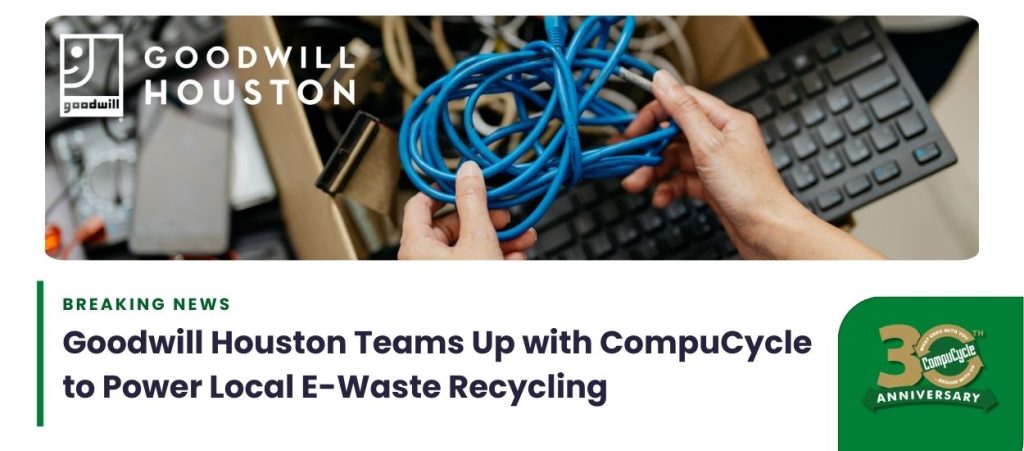
IT asset disposal (ITAD) is a growing concern for organizations both large and small. This trend is the result of a combination of factors. The very first factor is the increasingly complex security landscape in which companies are operating. Digital security has a very clear physical component to it, and it begins with securing IT equipment.
The second factor is the evolving nature of the workplace. Remote work, satellite offices, and other flexible arrangements are becoming more common as organizations exploit potential efficiencies and are more competitive.
The third factor is the pace of innovation. Corporations are now required to update their IT equipment more often than ever before. This means that the lifecycle for equipment has shrunk quite a lot.
All these factors have increased demand for ITAD companies that can handle the volume of equipment that needs to be disposed of securely. Today we’ll look at why ITAD services are so important for satellite offices and how it’s different from ITAD for your headquarters.

Frequency
The biggest difference that you’ll notice between IT Asset Disposition services for your HQ and your satellite offices is the frequency. Your headquarters or larger office spaces will normally harbor the bulk of your workforce. Given that the employees are concentrated here, so too will the IT assets.
Furthermore, even if the bulk of your workforce is spread across a wide area, your organization’s headquarter will normally keep the most privileged information and devices as close as possible. In any case, this means that the ITAD needs for this part of the organization will be more comprehensive.
IT Asset Disposition services will be needed with more regularity to destroy data, perform deep cleans of equipment, deal with old tech, and much more. This isn’t to say that satellite offices aren’t important and won’t need such services.
Satellite offices are less likely to have a high volume of sensitive information, meaning that they may require the attention of ITAD services less often. However, it can be tempting to view this as a reason to abandon such measures for satellite offices altogether.
Satellite offices are still a part of your organizational network. Not only can the devices from them be used to maliciously access your network, but they can also contain privileged information about the company that can be risky in the wrong hands.
Logistics
Satellite offices can be quite far away from your main operations, which means that they will often need to be considered separately when recruiting the help of ITAD companies. ITAD Companies like CompuCycle, provide lots of options when it comes to handling your IT assets. CompuCycle allows you to drop off the assets yourself, ship it yourself, have us pick up your packed items, or have us come and do the whole process ourselves.
You may wish to use the self-service option for satellite offices and let CompuCycle handle the process from top to bottom when it comes to the whole organization. This would make sense too, since there aren’t a lot of devices at the satellite offices, or at least there are likelier fewer devices.
Policies
It’s common practice to have stricter policies in locations where there is a separation between the workforce and the security team. This was widely felt during remote work during the pandemic when employees were required to take network security far more seriously than they would’ve previously done.
The problems with satellite offices and the devices being used there are the same as with remote work. There are greater chances of slip-ups and mistakes causing security breaches. Furthermore, employees are less likely to follow security protocol when a watchful eye isn’t present around them. Moreover, the inventory of all the electronics at the office may not be up to date.
ITAD services cannot make up for employee negligence while the asset is in use. For instance, CompuCycle has immense trust in its processes to handle ITAD securely and responsibly. However, if an employee was not careful with the device when it was in circulation, no amount of data destruction can protect the organization.
This is why satellite office workers need to be trained to ensure that their devices don’t end up opening up gateways for malicious parties.
Final Word
CompuCycle is one of the premier ITAD companies in the United States. We can handle the national ITAD needs of organizations of any size. CompuCycle also has the ability to recycle all material that can not be reused or remarked directly into its raw materials due to our exceptional processing plant. You can trust us to keep track of all your IT assets through the onsite portal as they go through the disposal process and give back maximum value from the sale of these assets or constituent parts. Reach out now to learn more!
Recent Articles
Goodwill Houston Partners with CompuCycle to Offer Simple, Responsible Electronics Recycling for the Community
Goodwill Houston and CompuCycle have partnered to give Houstonians a simple, trustworthy way to donate and recycle household electronics.
Through this collaboration, residents can drop off laptops, desktops, tablets, monitors, and other household electronics at participating Goodwill Greater Houston donation centers. Reusable items help fund Goodwill’s job training and community programs, while non-resellable electronics are sent directly to CompuCycle’s certified Houston facility for secure, fully in-house recycling—ensuring materials are responsibly processed locally from start to finish.
CompuCycle Becomes Exclusive Woman-Owned E-Waste Processor in Texas with ISO 27001 Data Security Certification
New Information Security Management System (ISMS) Certification Guarantees End-to-End Data Confidentiality and Integrity for Corporate IT Asset Disposition (ITAD). HOUSTON, TX – December 9, 2025 – CompuCycle, an industry leader in secure and sustainable IT…
Secure Electronics Disposal in Houston: Why the City’s Largest Industries Trust CompuCycle
When a major healthcare system decommissions thousands of laptops, or an oil and gas company retires an entire data center, one question comes up again and again: What happens to all that data — and…
CompuCycle Executives Join R2 TAC and e-Stewards Leadership Council to Advance ITAD Standards
Houston-based ITAD provider deepens its industry influence through active participation in standard-setting committees. As corporate ITAD needs evolve alongside stricter compliance and ESG requirements, CompuCycle continues to lead the way—this time by contributing directly to…



